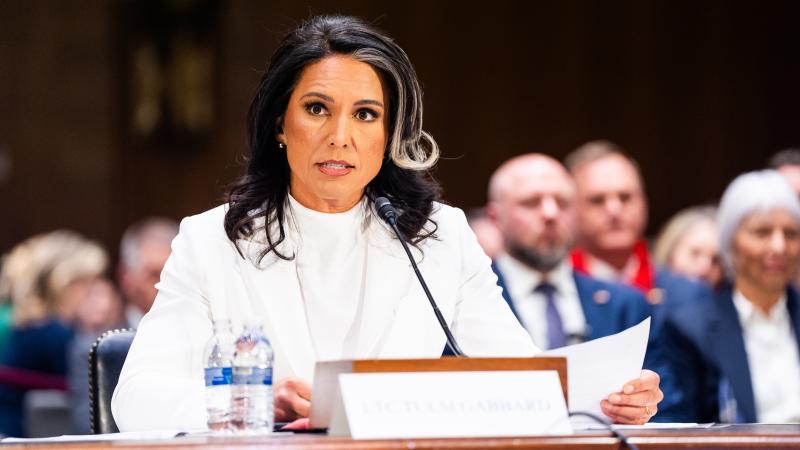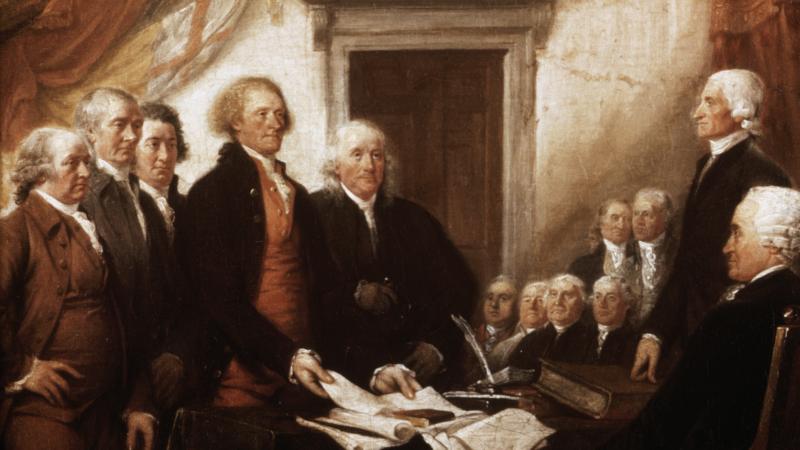SBA oversight failures lead to $93M in questionable awards to disadvantaged firms: internal audit
Agency watchdog found 15 of 40 firms tested were "ineligible" for awards due to lack of "approved business plans," and 78% of files reviewed lacked sufficient evidence of "regular and meaningful feedback" from specialists.
The Golden Horseshoe is a weekly designation from Just The News intended to highlight egregious examples of wasteful taxpayer spending by the government. The award is named for the horseshoe-shaped toilet seats for military airplanes that cost the Pentagon a whopping $640 each back in the 1980s.
This week's Golden Horseshoe is awarded to the Small Business Administration, which awarded $93 million in questionable contracts to small businesses owned by socially and economically disadvantaged individuals under the agency's 8 (a) Business Development Program, according to a recent audit by the SBA Office of Inspector General.
The SBA's 8 (a) Business Development Program's aim is to help small businesses owned by disadvantaged individuals gain the skills needed to access federal contracts. But lax oversight by the agency, including failures to consistently vet business plans and monitor business development, led to millions in questionable awards, the OIG audit determined.
After a review of records from 2011 to 2020, the inspector general found that 15 of the 40 firms tested "did not have approved business plans, making these firms ineligible to receive $93 million in 8(a) awards."
The watchdog found the agency's business development process did not have a mechanism in place to ensure the agency "consistently reviewed business plans and goals" and "objectively monitored business development progress."
"SBA's approach to monitoring 8(a) firms is more focused on reviewing for program eligibility rather than the progression of the 8(a) firm's business development," the audit assessed. "Without processes in place to objectively monitor an 8(a) firm's progress and measure program performance, stakeholders cannot determine success of the program."
In failing to consistently review business plans and monitor progress, the agency fell short of compliance with the requirements of the Small Business Act, the IG found.
"Under the Small Business Act, firms are ineligible for 8(a) contracts if they do not have approved business plans," the report noted.
The act also requires the SBA to monitor the 8 (a) firms' business development, yet a large percentage of files the IG reviewed lacked documentation showing the business performance of the firms was reviewed. No less than 31 of 40 files, or 78%, lacked "sufficient support to show specialists provided regular and meaningful feedback during annual business plan reviews," the auditors found. "We also did not find evidence they reviewed performance toward business goals as intended by Congress."
Beyond the $93 million in questionable awards, Inspector General Hannibal "Mike" Ware also found the SBA failed at documenting whether staff assessed the needs of the business owners, counseled them, or conducted field visits.
The SBA also missed mandated deadlines on reporting to Congress due to "data reliability issues."
Declaring it "strongly refutes the questioned costs included" in the IG report, the SBA challenged the IG's finding that lack of supporting documentation of business plan approval constitutes noncompliance with the Small Business Act.
"First, SBA highlights that the Small Business Act does not mandate a written approval of business plans," Dr. Donna L. Peebles, associate administrator Office of Business Development, and Victor Parker, acting associate administrator Office of Field Operations, wrote in a letter to Ware.
"Next," the functionaries continued, "SBA contends that OIG has mischaracterized the conclusions drawn from the finding. Specifically, SBA acknowledges a weakness related [to] retaining documentation during information system data migrations, as opposed to a current weakness in controls related to the review and approval of business plans.
The SBA has spent an average of $62 million in recent years for the administration of the 8 (a) Business Development Program, and its FY 2022 budget requested additional staff to increase awards through the program by 5% to 15% by 2025, according to the audit.
















